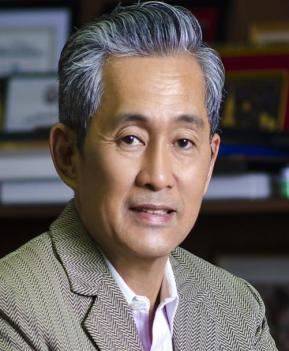TECH4GOOD

The Philippines hosted a major blockchain technology conference last week attended by thousands from around the world. The three-day Philippine Blockchain Week (PBW) featured plenary and breakout speakers talking about a broad spectrum of blockchain-related topics. It also included workshops, exhibitions, side events including a blockchain-enabled fashion show, and networking opportunities for enthusiasts, developers, students, government people, investors, and entrepreneurs in the field of distributed ledger technology.
Organized by the Blockchain Council of the Philippines, the conference aimed to showcase the latest innovations, trends, use cases, and challenges in the blockchain industry and promote the Philippines as a hub for blockchain development, innovation, and adoption.
Although blockchain technology has gained attention as the foundation of cryptocurrencies, its potential is going beyond that. The conference was a testament to the growing interest and adoption of blockchain technology in the Philippines and beyond. It also demonstrated the opportunities and challenges that lie ahead for the blockchain industry, as well as the need for more research, development, and regulation. It is even finding its way into the public sector based on the use cases in several government agencies highlighted during the conference. The technology promises to revolutionize government operations, enhance transparency, improve service delivery, and build trust in government transactions.
Filipinos are beginning to warm to blockchain, also known as distributed ledger technology, and look beyond the controversies brought by some dubious cryptocurrency players. The excitement was unmistakable among the attendees, who expressed their enthusiasm for learning, sharing, and collaborating with each other. One of the highlights of the conference was the Block Awards, which recognized the excellent efforts of Filipino innovators who have made inroads in the local and global blockchain market. It also featured a keynote speech by Mark Joyner, the recognized digital marketing father who discussed the technology's potential to create profound changes in society. I was so amused by one of his slides that says, “Fast-moving tech vs. Slow-moving government.”
To me, what differentiated this year’s event from that of last year were the breakout sessions. The ICT Industry Development Bureau (IIDB) of the Department of Information and Communications Technology (DICT) conducted three Blockchain 101 sessions. One session was conducted for participants from the government and two sessions were attended by students. In addition, DICT also organized a hackathon that challenged teams to create solutions for various sectors using blockchain technology. Those sessions were not just meant to increase the level of awareness of the participants on blockchain technology but, more importantly, to get them to think of innovations that can be developed using the technology.
The session for government officials was supported by the Chief Information Officers Forum (CIOF), the association of government CIOs. It was well attended, which reflects the growing interest in the government in exploring the potential of blockchain to address their digital challenges. The speakers presented use cases for blockchain in the public sector, the potential impact on governance and services, addressing adoption challenges, and how to identify opportunities for applying blockchain in their agencies. Many governments around the world are increasingly recognizing the potential use of blockchain in areas such as elections, supply chain management, digital identities, smart contracts for government services, and creatives.
DICT had to do two Blockchain 101 sessions for the students to accommodate the sheer number of participants who registered. This indicates an increasing interest among our young people to understand the core principles and the power of this new technology especially for its application beyond that of cryptocurrencies. The speakers were able to separate the myths from the real attributes of blockchain in terms that any person would easily understand.
The breakout session on Blockchain and AI organized by the Analytics and AI Association of the Philippines (AAP) focused on the combined power of blockchain and artificial intelligence and was a huge success with the SRO attendance that we saw. The speakers spoke on the potential of combining the use of these two powerful technologies which is almost infinite as they can actually complement each other. Blockchain can provide a secure and tamper-proof way to store data while AI can help analyze and make sense of that data. Together, these two technologies could further transform the way we do business and interact with the world.
Blockchain is a powerful technology with the potential to revolutionize not just the public sector but many industries. As it continues to mature and evolve, its impact will be felt in areas like finance and supply chain management to healthcare and beyond. It is an exciting time for the global digital economy including that of the Philippines as it paves the way for a more secure, transparent, efficient, and inclusive future. Additionally, blockchain is enabling new business models and opportunities for innovation that everyone can leverage especially our young people. Embracing blockchain technology is not merely an option today; it is a necessity in the ever-changing landscape of our digital economy. ([email protected])
(The author is an executive member of the National Innovation Council, lead convenor of the Alliance for Technology Innovators for the Nation (ATIN), vice president of the Analytics and AI Association of the Philippines, and Vice President, UP System Information Technology Foundation.)